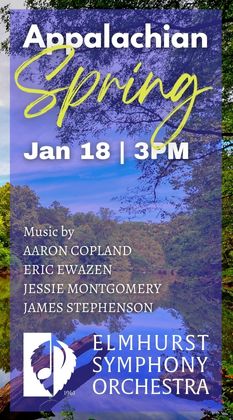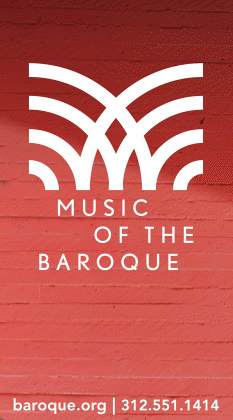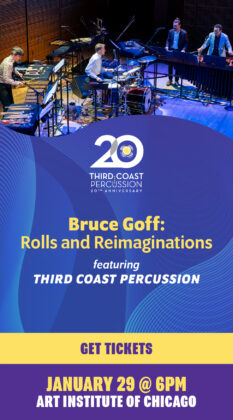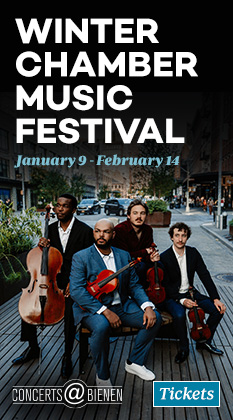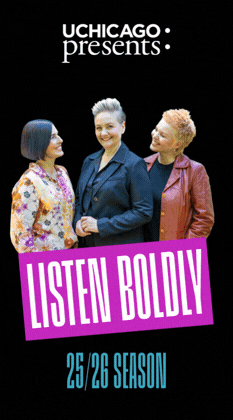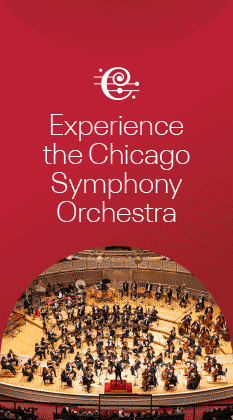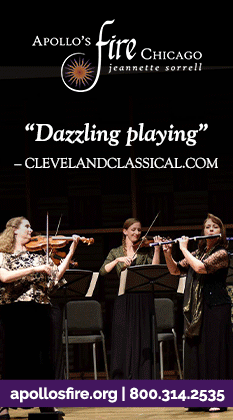Liebermann premiere makes strong impact with Emerson Quartet
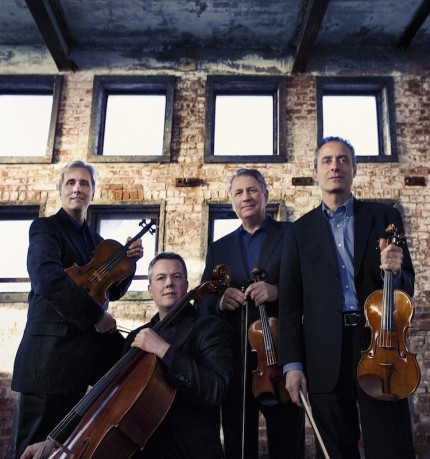
In addition to serving as downtown base for Music of the Baroque, Chicago Opera Theater, and the CSO’s MusicNOW programs, the Harris Theater has been lately extending its classical reach. This season Harris began presenting vocal recitals with Lyric Opera stars in the “Beyond the Aria” series. And last December the venue presented one of the top events of 2014, Rossini’s William Tell with Gianandrea Noseda leading the Teatro Regio Torino.
Perhaps most ambitiously, the Chamber Music Society of Lincoln Center is expanding its presence at the Harris. As announced at the start of Wednesday night’s concert by the ensemble’s ebullient co-director Wu Han, CMS will increase its lineup to six concerts in 2015-16.
The Chamber Music Society brought the big guns for its final Chicago program of the season with the Emerson String Quartet and friends.
It’s encouraging to see any increase in the city’s classical offerings, and Wednesday’s concert drew a notably impressive turnout. Still, the Harris remains a challenging venue for chamber music. Even as storied an ensemble as the Emerson Quartet sounded distant and dry of tone Wednesday with a fitful lack of presence to the violins. Perhaps some sort of stage canopy behind the players would project a more focused sound into the hall and, to some extent, ameliorate the acoustic’s lack of bloom.
The astringency proved apt, however, for the opening work, Lowell Liebermann’s String Quartet No. 5, a CMS commission, which was heard in its Chicago premiere.
As with most of the composer’s works, the Fifth Quartet has no specific program, though Liebermann states that it was “at least partly influenced by any number of depressing/terrifying events of the kind with which we are all bombarded daily, in what seems more and more like a world gone mad.”
Yet the work, cast in a single movement of 23 minutes, is neither unremittingly pessimistic nor superficially tragic. An elegiac character clearly dominates, from the two drone cello notes that open the piece, leading to high, unsettling harmonics from the violins.
Amid the bleak introspection, there are brief rays of light, as with the spare fragile lyricism of the gently rocking violin theme. The tempo quickens and the music grows more vehement and aggressive, with agitated figures ricocheting between the players. An affecting radiant theme arises out of the darkness offering a respite from the jagged melancholy and turbulence. At the coda some degree of solace seem to be achieved as the music quietens and slows to silence.
Liebermann is among the most gifted of living American composers, and his Quartet No. 5 is a strong, compelling and powerfully communicative work. The Emerson members gave this local premiere impassioned and eloquent advocacy. We need to hear much more of Lowell Liebermann’s music in Chicago.
Mozart and Tchaikovsky chestnuts made up the rest of the program. Violist Paul Neubauer joined the Emersons for Mozart’s String Quintet in E flat, K.614. The music’s intimacy and charm were somewhat lost in the vast space, but the playing was consistently buoyant with cohesive ensemble teamwork. The Andante went with the requisite Rococo elegance, violinist Eugene Drucker spinning graceful arabesques over his colleagues. The closing Allegro—one of Mozart’s most scintillating chamber finales—was thrown off with admirable spirit and joie de vivre.
Colin Carr provided the second cello for Tchaikovsky’s Souvenir de Florence, the most performed–some would say over-performed—of string sextets. (Next season CMS will offer Mendelssohn’s Sextet, a genuine rarity.)
Philip Setzer took the first violin position for Tchaikovsky’s musical ode to his enjoyable sojourn in the Mediterranean (though most of the themes sound decidedly more Russian than Italian).
With a larger number of players on stage, the sextet had a greater sense of presence, though at times one still wanted more thrustful kick from the violins, especially in the opening bars, which felt a bit low-voltage. Setzer, however, brought refined tone to the contrast of the lyrical second theme. The six musicians showed impressive professionalism, keeping their concentration even with a persistent obbligato squeaking in the audience that sounded like an amped-up hearing aid.
Marking two years this month since succeeding David Finckel, Paul Watkins has clearly become an integral member of the quartet, and his warm, burnished cello tone was a consistent pleasure in the Adagio, which also drew affectionate playing by all. Taken at lightning speed, the final bars of the closing movement provided ample bravura and fireworks, ending the Chamber Music Society’s Chicago season on a high note.
The Harris Theater’s 2015-16 season includes the Kronos Quartet in the world premiere of My Lai, an operatic monodrama composed by Jonathan Berger; Joshua Bell and the Academy of St. Martin in the Fields, Pinchas Zukerman and the Royal Philharmonic Orchestra; and Itzhak Perlman and the Juilliard Orchestra. harristheaterchicago.org.
Posted in Uncategorized
